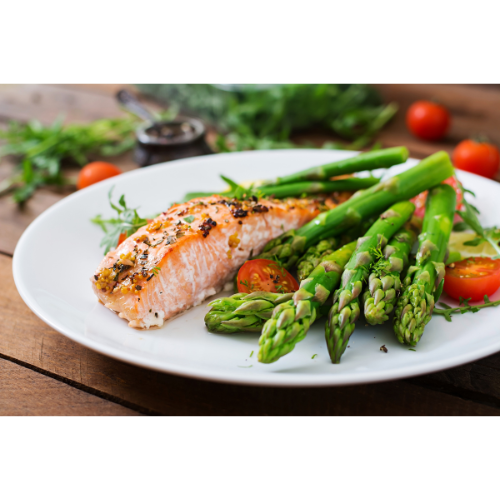In the contemporary discourse regarding health and wellness, the significance of nutrients for ocular well-being is often overshadowed by broader health narratives. However, an increasing body of research underscores the necessity of specific nutrients in the prevention of age-related macular degeneration (AMD) and other ocular afflictions. A thorough understanding of nutrient-dense meals tailored for eye health can not only enhance visual acuity but also contribute to a systemic sense of wellness.
**The Visual Nutrient Spectrum: Key Players in Ocular Health**
The intricate relationship between nutrition and eye health pivots around several essential nutrients. Vitamins A, C, and E, as well as the carotenoids lutein and zeaxanthin, are paramount for maintaining optimal ocular function. Moreover, Omega-3 fatty acids serve as a critical component in reducing the risk of dry eye syndrome and enhancing retinal health. This subsection will explore each of these nutrients in depth.
*Vitamin A: The Ocular Protector*
Vitamin A functions as a cornerstone in the maintenance of good vision, particularly in low-light conditions. This vitamin is found in an array of dietary sources including dark leafy greens, carrots, and sweet potatoes. Retinol and carotenoids, two forms of Vitamin A, are essential for the formation of rhodopsin, a protein in the eyes that helps with vision in low-light environments. Additionally, a deficiency can lead to a condition known as xerophthalmia, which can cause blindness.
*Vitamin C: The Antioxidant Shield*
Vitamin C plays a multifaceted role in eye health due to its potent antioxidant properties, which neutralize free radicals that contribute to cataract formation and other degenerative conditions. Citrus fruits, strawberries, and bell peppers are abundant sources of this essential nutrient. Regular consumption not only supports overall health but specifically fortifies the eyes against oxidative stress.
*Vitamin E: The Cellular Defender*
Vitamin E, another antioxidants superstar, functions in tandem with Vitamin C to protect cell membranes in the eyes from oxidative damage. Nuts, seeds, and green leafy vegetables are rich in this nutrient. Studies indicate that adequate Vitamin E intake can mitigate the risk of cataracts and AMD, reinforcing the eye’s natural defenses.
*Lutein and Zeaxanthin: The Eye-Specific Carotenoids*
Lutein and zeaxanthin accumulate in the retina and are renowned for filtering harmful blue light, thereby reducing the risk of retinal damage. These carotenoids can be predominantly found in kale, spinach, and other green vegetables. Their consumption is not only advantageous for eye health; it also contributes to improved visual contrast and glare recovery, essential for daily activities.
*Omega-3 Fatty Acids: The Essential Lipids*
Omega-3 fatty acids are vital for optimal eye function. Particularly, docosahexaenoic acid (DHA) is a primary structural component of the retina. Regular intake of omega-3s, found in fatty fish such as salmon, sardines, and flaxseeds, has been associated with a reduced risk of dry eye syndrome and may improve overall eye comfort and health.
**Crafting Nutrient-Dense Meals for Ocular Wellness**
Creating a meal plan rich in the aforementioned nutrients involves a careful selection of food items that deliver a spectrum of vitamins, minerals, and antioxidants. Below, one will find illustrative meal options that exemplify the integration of these vital components into daily nourishment.
*Breakfast: Kale and Spinach Smoothie Bowl*
Start the day with a nutrient-packed smoothie incorporating kale, spinach, and banana blended with almond milk. Top with chia seeds and sliced kiwi for an additional vitamin C boost and omega-3 fatty acids. This breakfast ensures a hearty infusion of lutein, zeaxanthin, and antioxidants to energize the morning.
*Lunch: Grilled Salmon Salad*
A delightful lunch comprised of grilled salmon served over a bed of mixed greens featuring arugula, bell peppers, and avocado establishes a nutrient-dense option. Drizzling with a homemade citrus vinaigrette not only enhances flavor but also fortifies the dish with additional vitamin C. This meal provides an abundance of omega-3 fatty acids and eye-protective carotenoids.
*Dinner: Quinoa and Sweet Potato Stir-Fry*
For dinner, a stir-fry featuring quinoa, diced sweet potatoes, and broccoli provides a hearty base while contributing critical vitamins and vital nutrients. Enhance with a sprinkle of pumpkin seeds for an added dose of vitamin E and healthy fats. This colorful dish is a veritable banquet of beneficial components, delivering flavors and nutrients in tandem.
**Incorporating Nutritional Variety: An Essential Approach**
To maintain ocular health effectively, it is imperative to incorporate diversity in meal planning. A wide range of foods ensures not only a more palatable experience but also the consumption of various nutrients that synergistically support eye well-being.
Integrating whole grains, such as brown rice and oats, alongside legumes like lentils and chickpeas, further amplifies the nutrient profile. Introducing spices like saffron and turmeric can offer anti-inflammatory benefits, reinforcing ocular defenses.
**Practical Tips for Optimum Eye Nutrition**
Adopting a holistic approach to nutrition for eye health entails more than meal composition alone. Here are practical recommendations to enhance dietary adherence.
*Stay Hydrated:*
Adequate hydration is paramount. Dry eyes can be exacerbated by dehydration, thus ensuring proper fluid intake is essential for maintaining tear production and overall eye health.
*Limit Processed Foods:*
Reducing processed foods laden with refined sugars and unhealthy fats can diminish inflammation throughout the body, directly benefiting ocular health.
*Routine Eye Check-ups:*
Regular visits to an eye care specialist are crucial for early detection of any potential vision issues. Nutritional support combined with professional care forms a robust strategy for safeguarding eye health.
In conclusion, the profound interconnection between nutrition and eye health is indisputable. By embracing a diet rich in essential vitamins, antioxidants, and healthy fats, individuals can nourish their eyesight and diminish the risk of common ocular diseases. A proactive approach to eye health encapsulates the wisdom of preventive care, intertwining dietary choices with a vision for a healthier future.
